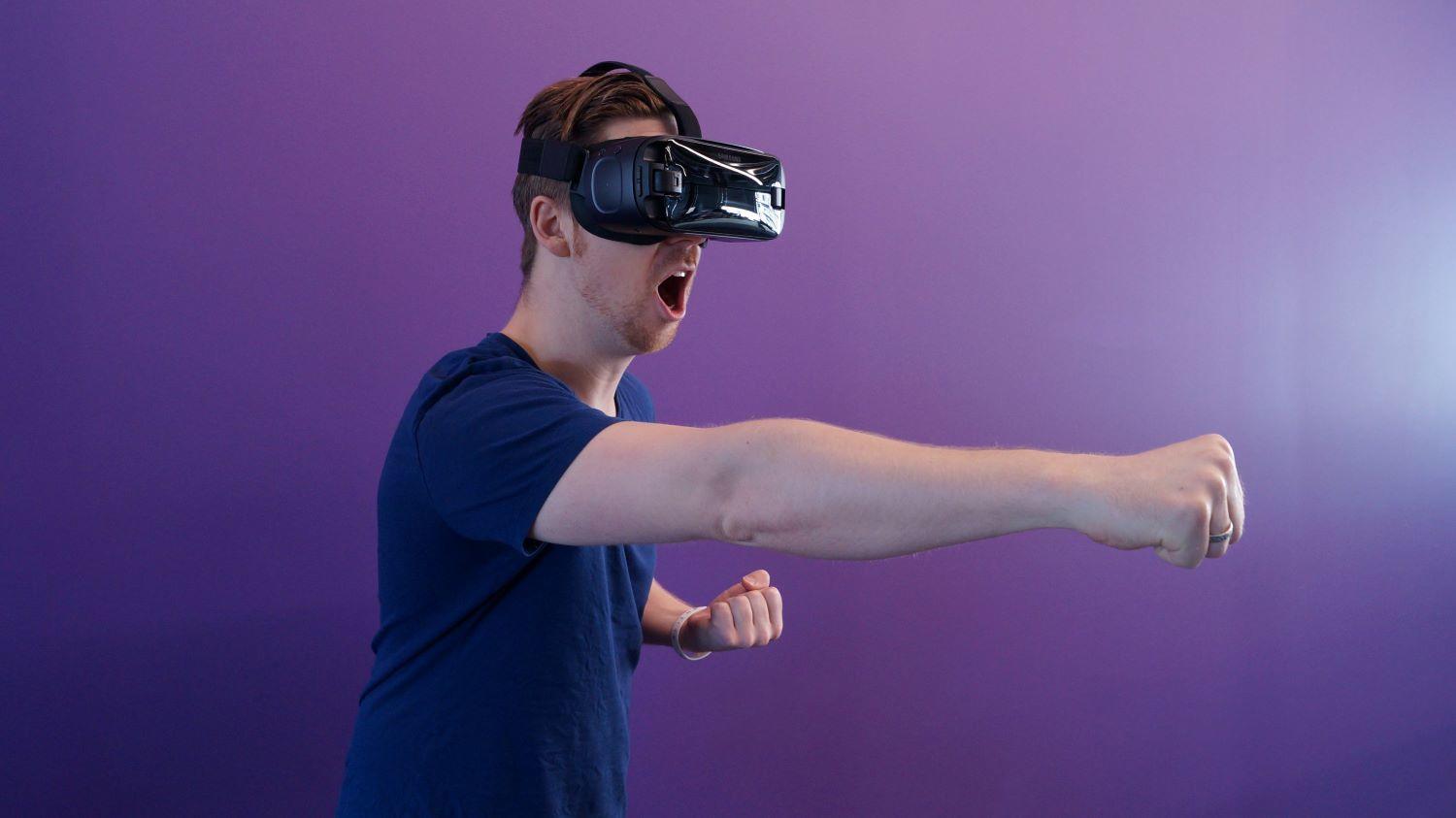Did you know that Python is an excellent tool for programming video games? Whether you are a student preparing for a software career or an amateur passionate about creating video games, Python is a wonderful programming language to get you started in the virtual universe of video games and their programming.
But how do you develop a video game with Python? To create a video game, you must master many programming skills, such as variables, loops, conditional statements, functions, object-oriented programming (OOP), and probably many algorithms. But worry not! You will find many tools and libraries in the Python ecosystem to help you create games quickly and efficiently.
If you learn Python for game creation, focus all your energy on developing the game logic without getting bogged down by technical details. Are you ready to see your imagination come to life? Learn how to program your video games with Python! Or, get ready to accomplish everything you want with Python and web development!

Is Python good for gaming?
Yes, Python can be used to get started in 2D and 3D game creation! Whether you are an expert or a curious beginner, Python is an ideal programming language for game creation for many good reasons. The main ones are that Python is straightforward to use for all kinds of developers and offers many libraries and frameworks that make 2D and 3D game development efficient and effective.
Let's discover just a few Python libraries and frameworks below:
- PyGame: The most popular library that allows 2D game development in Python is PyGame. Many functions within PyGame make it easy to create a Python game, such as modules for graphics, audio, and input devices, and it works on almost all platforms and operating systems.
- Pyglet: It is a multimedia library for Python. It is used to create games and other visually rich applications. It provides various functions such as loading images, videos, and graphics in almost any format, without external dependencies or installation, available under the open-source BSD license, and it works on both Windows and Linux.
- The Python Arcade Library: It is a Python game development library for easy 2D game design with an intuitive API focusing on clear code. Arcade has a remarkable ability to manipulate individual pixels; it also uses OpenGL and develops very fast prototypes.
- PANDA3D: It is an open-source Python library that offers many tools and functionality for 3D graphics, sound, physics, etc. PANDA3D natively supports both C++ and Python.
- HARFANG: It is a real-time 3D visualization engine compatible with popular programming languages like Python. It supports a wide range of 3D solutions, such as modeling and simulation, and supports advanced applications, such as AR and VR solutions and interactive 3D applications.
Explore Python's real-world applications in Canada!

- Ren'Py: Ren'Py is an open-source visual novel engine designed to develop graphic novels and games with more complex simulations and provide easy customization and feature addition. It is compatible with Windows, Mac OS, Linux, Android and iOS.
- Kivy: Kivy is a Python game development framework that allows you to design, build, and publish GUI applications in Python, including 2D games. It offers various layouts, widgets, animations, an easy user interface, inputs, and events.
- Python-Ogre: Python-Ogre is a 3D graphics creation tool actively used in commercial and open-source games. It allows the enhancement of video games and the intuitive production of 3D graphical environments.
- Cocos2d: Cocos2d is a free Python framework for creating 2D games and other graphics software for iOS, Android, Windows, macOS, Linux, HarmonyOS, OpenHarmony, and web platforms.
- Soybean Bean three-D: It is a Python framework for developing 3D video games. This framework is a cross-platform game development engine that can run on Linux and Microsoft Windows.
Did you know that Python is also good for robotics? Learn more about Robotics and Python to become a pro!
What computer games use Python?
As the popularity of computer games continues to grow, Python has become a formidable player in the game development landscape. Thanks to its ease of use and versatility, Python has been used to create numerous compelling and popular computer games. From indie games to large-scale projects, we will discover some famous computer games using Python!
- Battlefield 2: a first-person shooter game set in a fictional war across the United States, the European Union, a Middle Eastern coalition, and China used Python for its mission scripting.
- Civilization: Recognized as one of the greatest PC game franchises, players take control of newly-formed civilizations. Here, Python enables many modding capabilities and is also a scripting language.
- The Sims 4: Classic simulation game, developed by Maxis and published by Electronic Arts, uses a custom-developed game engine and allows for multiple add-ons and flexibility in gameplay, using Python as well.
- World of Tanks: It is a massively multiplayer online game (MMO) developed by Wargaming. It is primarily written using Python.
- Pirates of the Caribbean: It is a massive 3D multiplayer online role-playing video game based on the Pirates of the Caribbean franchise, written using the Panda3d game engine (which allows both Python and C++ scripting).
Would you like to discover more about Python and machine learning? Or become a master of data science with Superprof?


Can you make computer games with Python?
Python, a versatile and easy-to-use programming language for beginners, has evolved far beyond its traditional applications to become an excellent tool for game development. Below, discover the advantages of using Python in game development, making it an attractive option for beginners and experienced developers looking to bring their game ideas to life.
Some of the advantages of using Python in Game Development are:
- Straightforward syntax: Python allows developers, even beginners, to quickly understand the language. Its simplicity accelerates the learning process, allowing developers to dive into game creation without spending too much time mastering the intricacies of the language.
- Access to game-based libraries and frameworks: Python has many libraries and frameworks designed specifically for game development. Instead of building everything from scratch, libraries such as Pygame, Panda3D, and Pyglet offer out-of-the-box capabilities for handling graphics, audio, and physics.
- Object-Oriented Programming (OOP): Python's support for object-oriented programming allows programmers to break their work into modular, reusable parts. It also makes the code reusable, organized, and easy to maintain.
- Rapid prototyping: Developers can quickly create playable prototypes of their ideas. The gameplay experience is enhanced by efficiently iterating and experimenting with game mechanics and features.
- Robust performance: Python provides sufficient performance for most game development requirements. In addition, developers can improve their code in places where performance is crucial by using specific libraries.

- Extensibility: Python allows you to integrate modules written in C or C++. This flexibility improves performance and overall game execution.
- Cross-platform support: Games created in Python can be quickly distributed and run on multiple operating systems, including Windows, macOS, Linux, and even mobile platforms when using mobile game frameworks such as Kivy or Pygame Subset.
- Support for AI integration: Python is a good choice for creating Artificial Intelligence game features to enhance gameplay and create intelligent adversaries or characters.
- Integration with other technologies: In addition to integrating AI, Python can integrate with other platforms, simplifying the implementation of elements such as machine learning and data analysis in games. This enables the development of more sophisticated and immersive game experiences.
- Strong community support: Python has a vibrant community of developers who share their expertise and contribute to open-source projects, create tutorials, share knowledge, and offer support through forums and communities.
Superprof: The best way to learn Python for Computer Games!
Did you know that video game programming is a special section within software development that allows the enhancement of various soft skills such as abstraction, problem-solving, and pattern recognition? That's right! These are other excellent reasons to start developing video games with Python!
Ready to get your hands on game development and become a Python pro at your own pace with Superprof? Superprof is a top tutoring platform worldwide, where you can find excellent face-to-face and online tutoring in 1,000+ subjects and, of course, in Python for game development. Upgrade your Python skills with 100% tailored private tutoring with the best Python teacher in Canada.
Whether you are a beginner in Python or a tech professional, boost your Python skills to develop computer games with Superprof!
- Go to our Superprof to find the best Python private tutoring for computer games!
- Type you want to learn "Python."
- Enter your location for face-to-face lessons, or click on "Online tutoring" for remote learning.
- Discover all the private tutors near you and choose your favorite.
- And last but not least, book a class!
Discover the best pocket-friendly tutors near you and master Python wherever you are in Canada.
Wrap up!
Enter the exciting world of Python in video game development. The rich Python ecosystem offers tools and libraries that simplify the creation of video games, allowing developers to focus on game logic rather than technical details. In addition, using Python to create video games has many other advantages, such as its simple syntax, OOP support, rapid prototyping, and community support.
If you want to learn Python for video games most effectively, go to Superprof, an ideal one-on-one tutoring platform to improve your knowledge of Python for game development with expert guidance from a Python online tutor or in person.
Start your journey towards Python game development with Superprof, wherever you are in Canada!

Summarize with AI:















